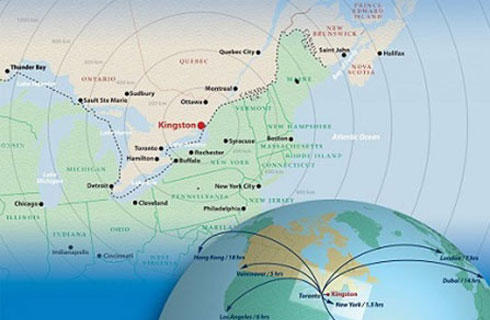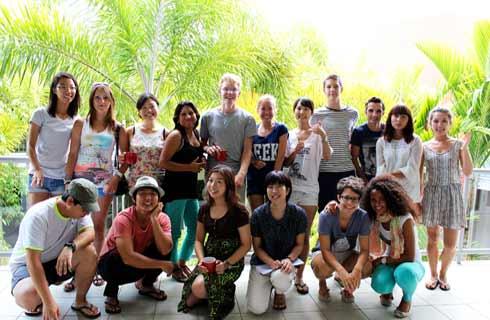- IDP China>
- 课程库>
- 社会科学>
- 公共管理与服务>
- 公共行政>
- Master of Public Policy and Administration - Indigenous Policy and Administration
公共政策与行政硕士-土著政策与行政
Master of Public Policy and Administration - Indigenous Policy and Administration

学历文凭
Masters Degree

专业院系

开学时间

课程时长

课程学费

国际学生入学条件
IDP—雅思考试联合主办方

雅思考试总分
7.0
了解更多
雅思考试指南
- 雅思总分:7
- 托福网考总分:100
- 托福笔试总分:600
- 其他语言考试:CAEL - 70
CRICOS代码:
申请截止日期: 请与IDP顾问联系以获取详细信息。
课程简介
For six decades, the School of Public Policy and Administration has been the leading centre for Canadian scholarship and graduate education in policy and administration—examining what governments do, why, and how they could do it better. The Master of Public Policy and Administration (MPPA) is a professionally relevant academic degree. It provides a comprehensive and rigorous preparation for careers that will engage with the public sector, recognizing that those careers may span the public, private, and non-profit sectors. <br><br>The environment of Indigenous policy and administration is changing. Leaders and managers must explore new opportunities for nation-building and social justice. To realize this promise, professionals working in the field of First Nation, Métis and Inuit governance or administration must understand their history, law, economics and politics, and become adept at bridging multiple worldviews.<br><br>Our graduate programs in Indigenous Policy and Administration can be completed as a Graduate Diploma in Indigenous Policy and Administration or as a concentration within the Master of Public Policy and Administration.<br><br>Both programs are grounded in a profound commitment to Indigenous self-determination, respecting the diversity of perspectives found among Indigenous cultures. Through them, you will become proficient at producing evidence for making enlightened public policy decisions and developing strategies for mobilizing the people and resources needed to effectively implement change. Through direct connections with a range of Indigenous communities, you will build a deep awareness of the legacies of Canada-Indigenous relations, and learn to incorporate community-based, Indigenous knowledge in your work.
相关申请
 预科
预科 奖学金
奖学金 实习机会
实习机会 在校学习
在校学习 跨境学习
跨境学习 校园授课-线上开始
校园授课-线上开始 在线/远程学习
在线/远程学习
学校排名

世界排名501
数据源:泰晤士高等教育世界大学排名
关于卡尔顿大学

卡尔顿大学位于加拿大首都渥太华市中心,自 1942 年以来一直通过学位相关的工作经验和研究提供卓越的学习。卡尔顿大学以其充满活力和多元化的社群为傲,欢迎来自世界各地的学生。大学拥有超过3万名学生,其中包括来自150个国家的近4000名国际学生,以及12.5万名校友。在这里,每位学生的独特视角都得到重视和赞赏。该大学注重沉浸式学习,让学生获得工作经验、动手研究和社区参与,为学业和职业发展奠定坚实基础。学生还有机会通过实习、合作项目和带薪实习等方式学习,确保毕业后做好充分的就业准备。卡尔顿大学的奖学金和助学金项目是加拿大最容易申请的项目之一。每年,大学向本科生颁发超过 13000 份奖学金和助学金,总额超过 2500 万加元。大学还保证为所有从高中直接进入一年级学习的学生提供宿舍中的双人传统房间,前提是他们在五月中旬之前收到录取通知书。国际学生可以选择在卡尔顿大学校园内住宿,直至完成整个学位课程,最多可连续住宿 5 年。大学校园毗邻美丽的里多河、历史悠久的里多运河和住宅区。渥太华拥有众多政府机构和大使馆,超过1900家科技公司,以及全国大部分临床、医学和生命科学研究中心。渥太华不仅是全球在工作与生活平衡方面处于领先地位的城市之一,而且在北美科技市场中,科技就业增长率最高,排名第二(2025 年全球工作与生活平衡城市指数 2024 年 Blueground 科技人才评分世邦魏理仕)。
本校相关课程
其他相关课程

公共管理硕士-管理
 达尔豪斯大学
达尔豪斯大学学历文凭
Masters Degree
开学日期
课程费用总额


公共行政大专文凭
 卡莫森学院
卡莫森学院学历文凭
Bachelor Degree
开学日期
课程费用总额


公共行政文学硕士(论文)
 渥太华大学
渥太华大学泰晤士高等教育世界大学排名:177
学历文凭
Masters Degree
开学日期
课程费用总额


公共行政哲学博士
 渥太华大学
渥太华大学泰晤士高等教育世界大学排名:177
学历文凭
Ph.D.
开学日期
课程费用总额


公共行政(荣誉)社会科学学士学位
 渥太华大学
渥太华大学泰晤士高等教育世界大学排名:177
学历文凭
Bachelor Degree with Honours
开学日期
课程费用总额


公共行政和政治科学(荣誉)社会科学学士学位
 渥太华大学
渥太华大学泰晤士高等教育世界大学排名:177
学历文凭
Bachelor Degree with Honours
开学日期
课程费用总额
































